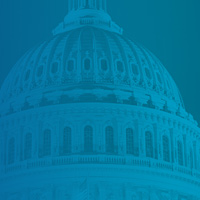-
Grants
17
-
Total Awarded
$15,878,034
-
Years
1997 - 2016
-
Categories
Grants
The Brookings Institution is a nonprofit public policy organization based in Washington, D.C. whose mission is to conduct in-depth research that leads to new ideas for solving problems facing society at the local, national and global level. Created in 1996, the mission of the Brookings Metropolitan Policy Program (Brookings Metro) is to deliver research and solutions that help metropolitan leaders build an advanced economy that works for all. This award will support general operations of Brookings Metro over the next two years, when the organization will be focused intensively on helping places deliver more productive growth and widespread economic opportunity.
At a time when the country’s top 100 metropolitan areas are home to nearly 65 percent of the population and generate 75 percent of the gross domestic product, the Brookings Institution’s Metropolitan Policy Program is focusing on how these areas create innovative policies, practices and institutions that will build the next economy in more resilient and equitable ways. This grant supports the Metropolitan Policy Program’s continuing leadership role in defining and advancing an agenda to create more productive, sustainable and inclusive metropolitan areas, providing decision-makers with cutting-edge research and policy ideas for improving the health and prosperity of cities and metropolitan areas.
The Brookings Institution Metropolitan Policy Program will use this grant to explore the potential of the referendum process and related ballot measures to fund economy-shaping strategies to create jobs and increase state and regional competitiveness in times of extreme fiscal stress - strategies such as, for example, transformative infrastructure projects (capitalizing infrastructure or green banks, or financing multimodal freight improvements); advanced research and development in high-growth sectors, and expanding university research capacity; commercializing innovation via incubators and advanced manufacturing centers; redeveloping brownfields by creating manufacturing or urban innovation districts; and local government authority to create financing mechanisms for targeted economic development activities.
To promote the understanding of and policy guidance about economic changes underway in American cities and metropolitan areas (over two years).
In support of expanding senior staff capacity and creating an endowment.
For an initiative on the economic transformation in American cities and metropolitan areas (over three years).
To support the Center on Urban and Metropolitan Policy (over five years).
To support research, recommendations, and communications relating to federal mixed-income housing policy.
To support research on federal transportation policy and legislation (over two years).
To support a comprehensive analysis of the 2000 census and its implications for urban policy.
To support the National Community Development Policy Analysis Network.
To support a policy session for a meeting of the National Community Development Initiative.
To support a policy session for a meeting of the National Community Development Initiative.
To support the Metropolitan Initiative, a research and policy agenda focused on urban reinvestment and regional equity (over two years).
To support the project Forging Metropolitan Solutions, particularly the Chicago metropolitan case study (over three years).







